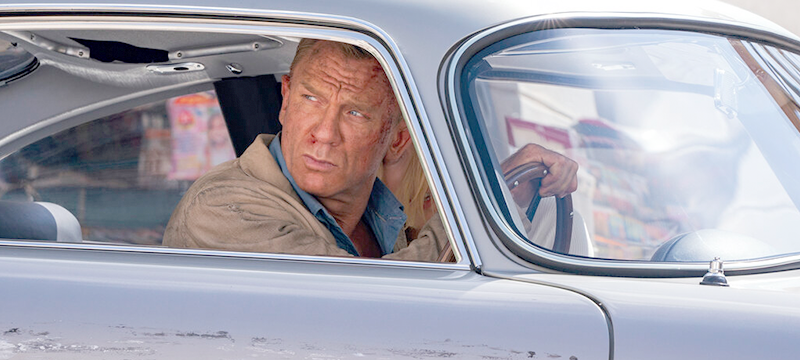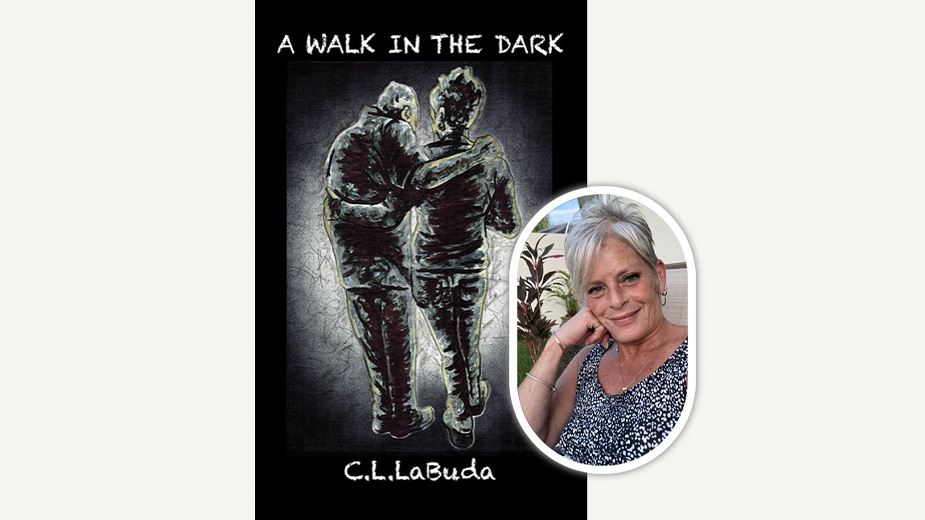Movie Review: Daniel Craig’s Exit from James Bond is Big and Brash
By Jill Lawless | AP Film Writer
Welcome back, Mr. Bond. This is your most important mission yet. The fate of the movie business depends on your success.
That’s how it feels, anyway, so high are industry expectations around “No Time to Die.” The 25th James Bond adventure is finally hitting screens a year and a half after its originally scheduled April 2020 release date, and is central to Hollywood’s hopes of luring pandemic-weary audiences back into movie theaters.
Moviegoers certainly get a lot of Bond for their buck in Daniel Craig’s fifth and final adventure as the suave but by now battered secret agent. At 2 hours, 43 minutes, it’s the series’ longest film yet. Big, brash, explosive and occasionally even tender, the movie nods fondly to the spy series’ past while moving — somewhat — into a more diverse, less male-dominated and Eurocentric era.
And it definitely provides a respite from weary reality. The coronavirus does not trouble James Bond’s world in “No Time to Die.” Much else does, though, from terrifying bioweapons to family legacies of violence.
Directed by Cary Joji Fukunaga, the first American entrusted with this treasured British export, the film opens with two sequences strikingly different in tone. The first is a chilly Scandinavian horror vignette, beautifully shot by cinematographer Linus Sandgren, that introduces themes of imperiled children and poisoned inheritances that will ripple through the film.
The second sequence offers one of those brief idylls Bond is occasionally allowed. Bond is retired from the world of spycraft and relaxing in Italian splendor with Madeleine Swann (Lea Seydoux). Soon, though, the strains of Billie Eilish’s theme song swell over the opening credits, and Bond is back on more familiar and hazardous terrain.
All is not well in the world. There are strains in the U.K.-U.S. spying relationship, and a deadly feud among international evildoers. Bond’s old nemesis Spectre and a rival crew are fighting for control of Heracles, a DNA-targeting biological weapon that could wipe out humanity. (A potential killer inside us: Maybe the real world is not so far away after all.)
From there on, it’s a protracted but pacey thriller with a plot that twists like a double helix. All Bond films are made from essentially the same ingredients; what sets them apart is the chemistry of their combination. “No Time to Die” has all the required elements: gorgeous locales, from Cuba to Norway to a chilly, handsome London. There are gorgeous cars, including, of course, a supercharged classic Aston Martin. There’s cool and faintly ridiculous technology: Nanobots and a bionic eye both feature prominently.
Screenwriters Fukunaga, Neal Purvis, Robert Wade and Phoebe Waller-Bridge — some moments of left-field humor seem to bear the “Fleabag” creator’s stamp — satisfyingly tweak the recipe.
Female characters who are there to kick ass rather than tempt Bond include Ana de Armas’ unflappable CIA agent Paloma and Lashana Lynch’s Nomi, a Black double-O spy who has no time for Bond’s patriarchal platitudes.
There’s a respectful but playful sense of the series’ six-decade past. Craig delivers some of the mandatory lines — “Bond. James Bond” — with a touch of Roger Moore’s raised eyebrow. Bad guys speak Russian. Rami Malek’s facially scarred villain, Lyutsifer Safin, prowls a brutalist bunker lair that Dr. No would be proud of.
Malek gives a performance full of quiet menace, though a British charity, Changing Faces, has chastised the filmmakers for equating disfigurement with evil.
The movie has a valedictory, “let’s get the band together one more time” feel, as Bond enlists old comrades — including Naomie Harris’s Moneypenny and Ben Whishaw’s Q — to destroy the weapon of mass destruction.
This is Craig’s swansong as Bond, a role he has played since “Casino Royale,” in 2006. Characters make frequent reference to Bond’s supposed decrepitude, though he seems nigh-on indestructible in the entertainingly elaborate, if sometimes visually chaotic, action sequences.
Craig brought a well-received muscularity to the part, and also a sensitivity that is particularly on display here. This is a Bond who mulls on his mistakes and even — gasp — talks about his feelings. One of the most enduring characters in the cinematic universe has evolved.
That feels like a good place to end. By the explosive finale, it’s clear “No Time to Die” is closing a chapter, if not the story, of James Bond.
“No Time to Die,” an MGM release in U.S. theaters Oct. 8, is rated for sequences of violence and action, some disturbing images, brief strong language and some suggestive material. Running time: 2:43. Grade: Three stars out of four.
This image released by Metro Goldwyn Mayer Pictures shows Daniel Craig in a scene from “No Time To Die.” (Nicola Dove/Metro Goldwyn Mayer Pictures via AP)
Copyright 2024 The Associated Press. All rights reserved. This material may not be published, broadcast, rewritten or redistributed.



